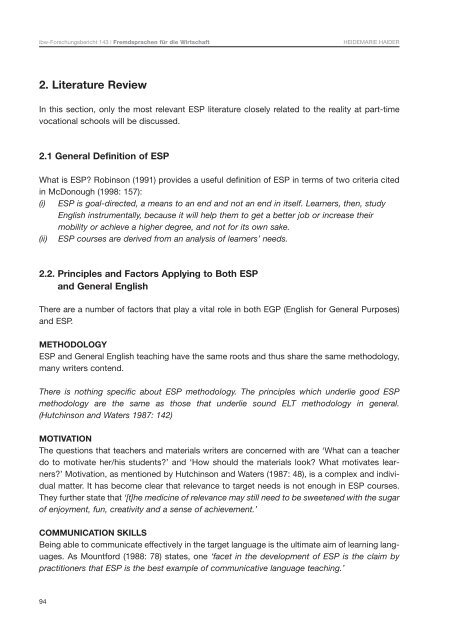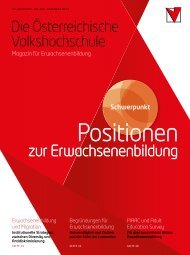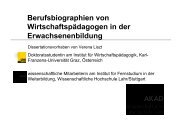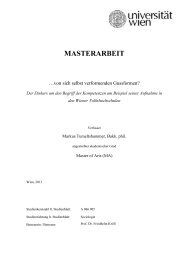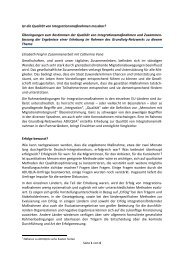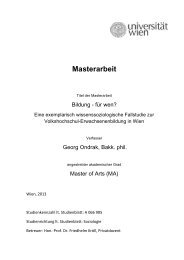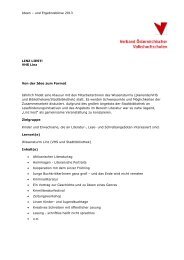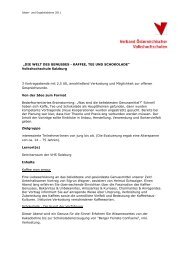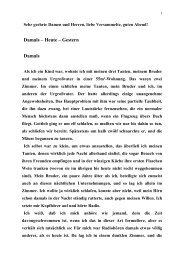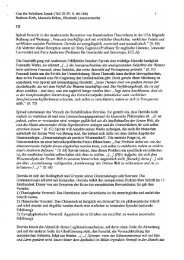Der sichere Umgang mit fremden Sprachen und Kulturen stellt heute ...
Der sichere Umgang mit fremden Sprachen und Kulturen stellt heute ...
Der sichere Umgang mit fremden Sprachen und Kulturen stellt heute ...
Sie wollen auch ein ePaper? Erhöhen Sie die Reichweite Ihrer Titel.
YUMPU macht aus Druck-PDFs automatisch weboptimierte ePaper, die Google liebt.
ibw-Forschungsbericht 143 | Fremdsprachen für die Wirtschaft HEIDEMARIE HAIDER<br />
2. Literature Review<br />
In this section, only the most relevant ESP literature closely related to the reality at part-time<br />
vocational schools will be discussed.<br />
2.1 General Definition of ESP<br />
What is ESP? Robinson (1991) provides a useful definition of ESP in terms of two criteria cited<br />
in McDonough (1998: 157):<br />
(i) ESP is goal-directed, a means to an end and not an end in itself. Learners, then, study<br />
English instrumentally, because it will help them to get a better job or increase their<br />
mobility or achieve a higher degree, and not for its own sake.<br />
(ii) ESP courses are derived from an analysis of learners’ needs.<br />
2.2. Principles and Factors Applying to Both ESP<br />
and General English<br />
There are a number of factors that play a vital role in both EGP (English for General Purposes)<br />
and ESP.<br />
METHODOLOGY<br />
ESP and General English teaching have the same roots and thus share the same methodology,<br />
many writers contend.<br />
There is nothing specific about ESP methodology. The principles which <strong>und</strong>erlie good ESP<br />
methodology are the same as those that <strong>und</strong>erlie so<strong>und</strong> ELT methodology in general.<br />
(Hutchinson and Waters 1987: 142)<br />
MOTIVATION<br />
The questions that teachers and materials writers are concerned with are ‘What can a teacher<br />
do to motivate her/his students?’ and ‘How should the materials look? What motivates learners?’<br />
Motivation, as mentioned by Hutchinson and Waters (1987: 48), is a complex and individual<br />
matter. It has become clear that relevance to target needs is not enough in ESP courses.<br />
They further state that ‘[t]he medicine of relevance may still need to be sweetened with the sugar<br />
of enjoyment, fun, creativity and a sense of achievement.’<br />
COMMUNICATION SKILLS<br />
Being able to communicate effectively in the target language is the ultimate aim of learning languages.<br />
As Mountford (1988: 78) states, one ‘facet in the development of ESP is the claim by<br />
practitioners that ESP is the best example of communicative language teaching.’<br />
94


